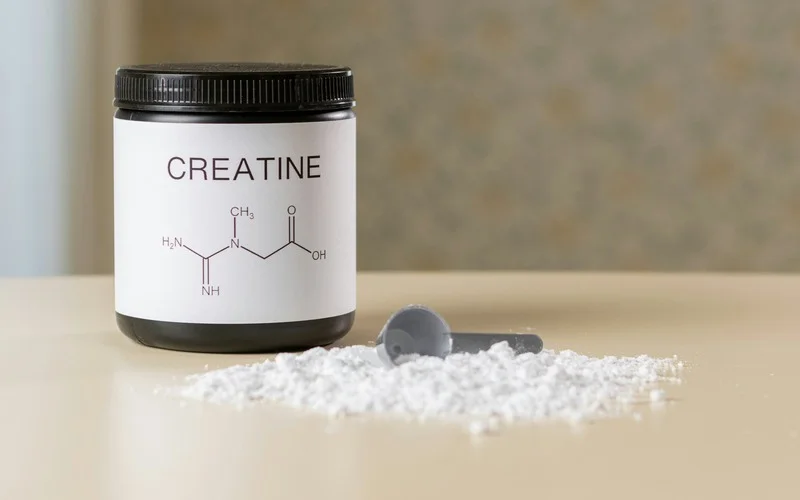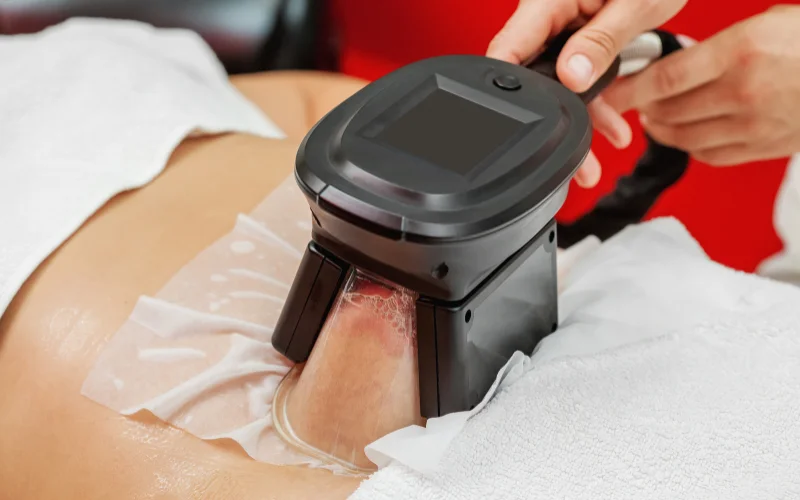Creatine is one of the most popular and extensively researched supplements in the fitness industry, celebrated for its ability to enhance athletic performance and support muscle growth. As athletes and fitness enthusiasts strive to maximize their results, many are left wondering, “Does creatine make you gain weight?” This question is vital for understanding how creatine works and its effects on the body, particularly regarding weight management.
The relationship between creatine supplementation and weight gain can be complex, involving factors such as water retention and muscle mass increase. While some individuals may worry about potential weight gain, it’s essential to differentiate between increases in lean muscle and unwanted fat. In this article, we will delve into the mechanisms behind creatine’s impact on weight, effective usage tips, and what you can realistically expect in terms of results, providing you with the knowledge to make informed decisions about incorporating creatine into your fitness regimen.
Key Takeaways
- Creatine can lead to weight gain, primarily due to increased water retention in muscles.
- It may also help build muscle mass, contributing to overall weight gain.
- Not all weight gain from creatine is fat; it often results from muscle growth.
- Understanding how creatine works can help you make informed decisions about its use.
- Combining creatine with a balanced diet and exercise can optimize benefits.
What is Creatine?

Creatine is a naturally occurring compound found in small amounts in certain foods, such as red meat and fish, and is also produced by the body from amino acids. It plays a crucial role in energy production, especially during short bursts of high-intensity exercise. When you supplement with creatine, you increase your body’s stores of phosphocreatine, which can enhance your performance in the gym and improve recovery times after workouts.
Does Creatine Make You Gain Weight?
Yes, creatine can lead to weight gain, and this increase can be attributed to several factors. The short answer is yes, but it’s essential to understand why this happens.
- Water Retention: One of the most significant factors contributing to weight gain when taking creatine is water retention. Creatine has the ability to draw water into your muscle cells, making them appear fuller and heavier. This can lead to a noticeable increase in scale weight, particularly during the first week or two of supplementation. However, it’s important to note that this weight gain is not fat.
- Muscle Mass Increase: In addition to water retention, creatine is known to promote muscle growth. By improving your performance during workouts, creatine allows you to lift heavier weights and complete more repetitions. Over time, this can lead to an increase in muscle mass, contributing to overall weight gain.
- Enhanced Recovery: Creatine can also aid in recovery after workouts, allowing you to train more frequently and effectively. This can further support muscle growth and overall fitness improvements.
How to Use Creatine Effectively

To maximize the benefits of creatine supplementation, it’s essential to understand how to use it properly. Here are some key strategies to ensure you get the most out of your creatine routine.
1. Dosage
A common approach is to start with a loading phase of 20 grams per day for 5-7 days, divided into smaller doses throughout the day. This strategy helps saturate your muscles with creatine quickly. After the loading phase, a maintenance dose of 3-5 grams daily is typically recommended to keep muscle creatine levels elevated. If you prefer to skip the loading phase, you can take the maintenance dose from the start, but it may take longer to see results.
2. Hydration
Staying hydrated is crucial when using creatine. Since creatine draws water into your muscle cells, it’s essential to drink plenty of fluids throughout the day. Proper hydration not only enhances creatine’s effectiveness but also supports overall performance and recovery. Consider incorporating hydrating foods and beverages, such as green juices designed for weight loss, which can provide additional nutrients while keeping you hydrated.
3. Timing
The timing of your creatine intake can influence its effectiveness. Many users find it beneficial to take creatine either before or after workouts. Taking it post-workout with a meal can enhance absorption, especially when combined with carbohydrates and protein. This timing can help replenish your energy stores and support muscle recovery.
5. Diet
Pair creatine supplementation with a balanced diet that includes an adequate amount of protein, carbohydrates, and healthy fats. Consuming carbohydrates alongside creatine can enhance its uptake into the muscles, maximizing its benefits. Focus on whole foods, including lean proteins, whole grains, fruits, and vegetables, to support your overall health and fitness goals, as they not only complements your creatine supplementation but can also assist in your weight management goals, helping to lose belly fat effectively.
6. Exercise
Creatine is most effective when combined with a consistent exercise routine, particularly strength training. Engaging in resistance exercises helps stimulate muscle growth, allowing you to take full advantage of creatine’s benefits. Aim to incorporate a variety of exercises that target different muscle groups, which can also help you lose belly fat and achieve a toned physique.
7. Cycling Creatine
Some individuals choose to cycle creatine, which involves using it for a certain period (e.g., 8-12 weeks) followed by a break (e.g., 4-6 weeks). This approach can help prevent your body from becoming too accustomed to the supplement, although research suggests that continuous use is generally safe for most people.
8. Monitor Your Body’s Response
It’s essential to pay attention to how your body responds to creatine supplementation. Keep track of any changes in weight, muscle gains, or side effects. If you notice any unwanted effects, consider adjusting your dosage or consulting a healthcare professional. Monitoring your progress will help you fine-tune your approach and ensure you’re on the right path to achieving your fitness goals.
Creatine vs. Other Supplements
| Supplement Type | Weight Gain Mechanism | Primary Benefits | Considerations |
|---|---|---|---|
| Creatine | Water retention and muscle growth | Enhanced performance, increased muscle mass | Minimal side effects, well-researched |
| Protein Powders | Muscle gain through increased protein intake | Supports muscle recovery and growth | Can contribute to fat gain if over-consumed |
| Weight Gainers | High-calorie intake, often with sugars | Rapid weight gain, muscle mass increase | Risk of fat gain, may contain fillers |
| Branched-Chain Amino Acids (BCAAs) | May help reduce muscle soreness | Supports muscle recovery, reduces fatigue | Less effective for muscle gain alone |
Potential Side Effects

While creatine is generally safe for most individuals, some users may experience:
- Gastrointestinal discomfort
- Cramping
- Bloating
These side effects can often be mitigated by ensuring proper hydration and spacing out doses throughout the day. If you experience any adverse effects, consider adjusting your dosage or consulting with a healthcare professional.
Conclusion
In summary, creatine can indeed lead to weight gain, primarily through water retention and increased muscle mass. Understanding how to use creatine effectively—through proper dosage, hydration, diet, and exercise—can help you maximize its benefits while minimizing any potential side effects. Remember that weight gain from creatine is largely lean muscle, making it a favorable supplement for those looking to enhance their performance and physique. By taking a thoughtful approach to creatine use, you can achieve your fitness goals and make informed decisions about your supplementation strategy. Whether you’re a seasoned athlete or just starting your fitness journey, creatine can be a valuable addition to your regimen when used correctly.
FAQs
How much weight can I expect to gain from creatine?
The amount of weight you may gain from creatine varies by individual, but many users report an increase of 1 to 3 pounds within the first week of supplementation. This initial weight gain is largely due to water retention in the muscles. Over time, as you continue to train and build muscle, you may see additional weight gain from increased lean muscle mass, which can further vary based on your diet and exercise regimen.
Is it necessary to load creatine for effective results?
Loading creatine is not strictly necessary, but it can accelerate the saturation of creatine in your muscles. A typical loading phase involves taking a higher dose (about 20 grams per day) for 5-7 days, followed by a maintenance dose of 3-5 grams daily. However, you can also achieve similar results by taking the maintenance dose alone; it may just take a bit longer to experience the full benefits.
Can creatine lead to dehydration?
While creatine itself does not directly cause dehydration, it can lead to increased water retention in your muscles, which may reduce the amount of water available in your bloodstream. It’s essential to stay well-hydrated while taking creatine, especially during intense workouts. Proper hydration can help prevent potential side effects and ensure optimal performance during exercise.






